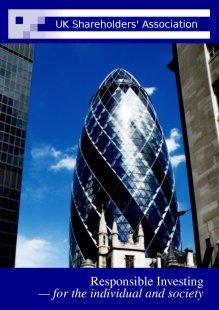Did the lack of liquidity mean Northern Rock was insolvent?
The fact that Northern Rock (NR) experienced liquidity problems is a complicated one. The Report by UKSA’s Northern Rock sub-committee on behalf of the Northern Rock Shareholder Action Group looked into the full circumstances and runs to 43 pages. A summary such as this article can only deal with a limited number of factors. The sub-committee has concentrated on the fact that shareholders were not compensated when the Bank was nationalised.
Just as a reminder of the regulatory structure at the time, we had one financial regulator, the Financial Services Authority (FSA), responsible for prudential and conduct regulation and supervision. But the full scope of financial supervision was split across the “Triumvirate”, the Bank of England (BofE), HM Treasury and the FSA.
And there was an important gap in UK legislation. In 2003, the G8 countries, with the exception of the UK, passed Banking laws that made provision for the rescue of banks with liquidity problems. Those laws included provisions aimed at “resolving” liquidity problems. The UK did not pass such a law as it was believed that because of the size and expertise of the London Financial Markets there was no need for such a law.
The main facts that created NR’s problems were as follows:
It became apparent to the BofE in August 2007 that NR was finding it increasingly difficult to renew its loans from other banks, loans which enabled it to increase the volume of mortgages granted. At the same time the market for one of its other main sources of funds, “securitized bond issues” (copied from the USA) ceased to operate and it became apparent that it could develop liquidity problems but in overall terms would remain solvent.
That situation was only known to the Triumvirate but a leaked “scoop” by a media reporter on the evening of 13th September 2007 brought it to public attention before an official announcement had been made. This leaked “scoop” included a statement that “Northern Rock has asked for and been granted emergency financial support from the Bank of England, in the latter’s role as lender of last resort”. That caused a run on the Bank by depositors, the first in Britain in over 120 years. It followed that none of the Board of Directors of NR, Parliament, BofE or the FSA was prepared for, or had experience of, such a “run”.
When the financial crisis started with NR in 2007, reliance had to be placed on the only law available, The Insolvency Act 1986. That presented a problem for Government in the case of NR. As the Bank was not insolvent it was necessary to “assume” that it was, therefore, the NR Compensation Order 2008 contained two “assumptions”: that a) it was unable to continue as a going concern and b) it was in administration. Those assumptions, contained in this Ministerial Order, turned the “assumptions” into legal requirements that had to be observed by a Valuer and which determined his final conclusion.
It took five months, until September 2008 before a Valuer could be appointed as there were no applicants. A valuer then took until December 2009 before he issued a “preliminary” conclusion that the shares had no value, and 1st October 2010 before he confirmed the same final conclusion. He had described the circumstances as being “unreal” but law, in the shape of the Ministerial Order, forced him to reach that conclusion.
The Financial Times at the time printed an article by Professor Tim Congdon, an economist who had been an adviser to the Conservative Party. It was a lengthy article which started with the headline, quoting the Professor, “Treasury cannot be allowed to rob bank investors”.
Now in 2021, thirteen years after the temporary nationalisation of the Bank, it has only just been released from Government ownership. The Government, in addition to having earned interest and fees and paid all expenses incurred throughout that period, has pocketed a final amount of over £7,800,000,000 in profit (coming from an Interim Dividend declared in favour of Government in 2018 of £2,690 billion, plus the balance shown in the 2020 UKAR Accounts of £5,129 billion).
It is apparent that there was never a Conservative Government intention to return NR to the ownership of its shareholders.

